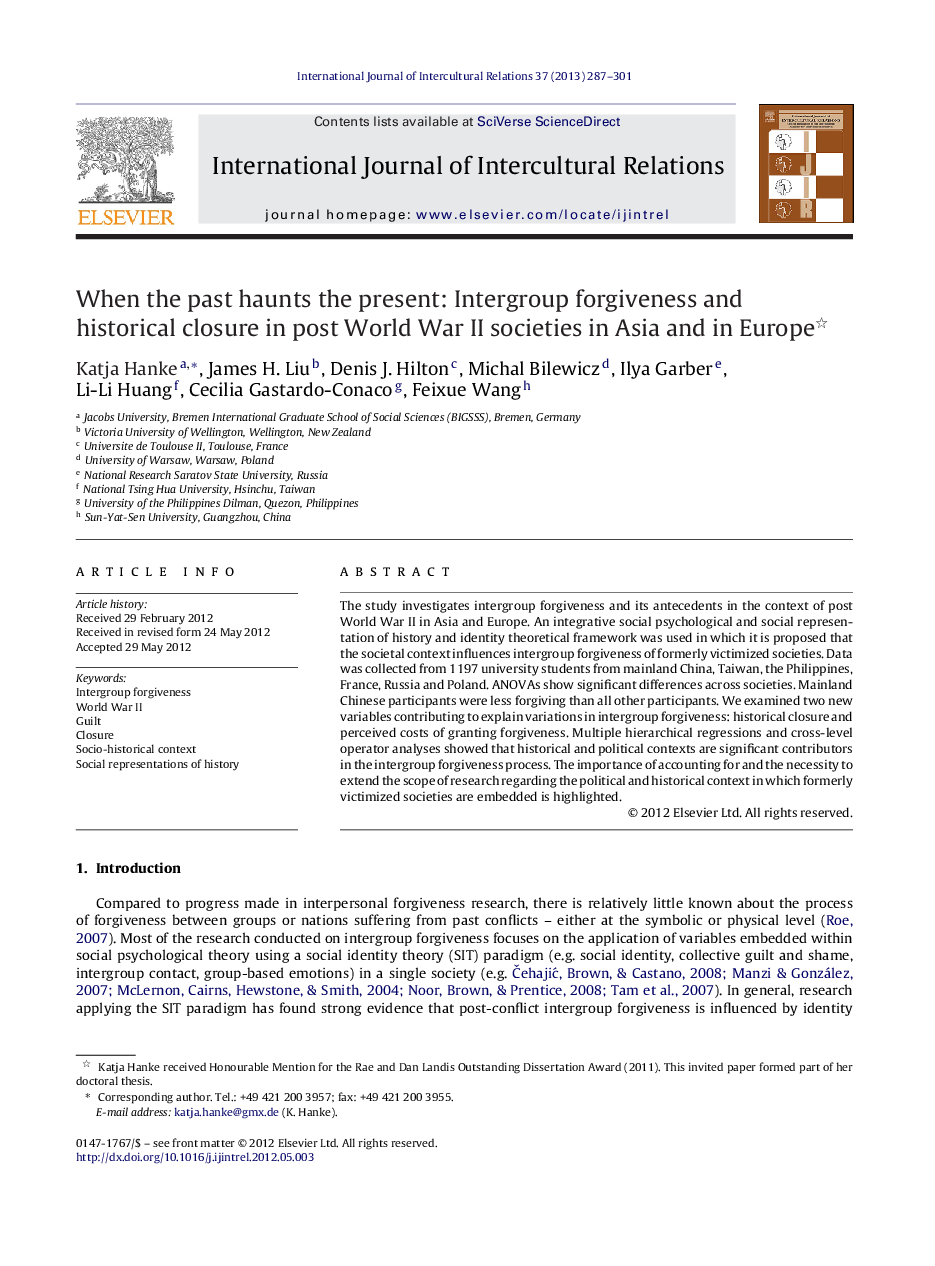| Article ID | Journal | Published Year | Pages | File Type |
|---|---|---|---|---|
| 947183 | International Journal of Intercultural Relations | 2013 | 15 Pages |
The study investigates intergroup forgiveness and its antecedents in the context of post World War II in Asia and Europe. An integrative social psychological and social representation of history and identity theoretical framework was used in which it is proposed that the societal context influences intergroup forgiveness of formerly victimized societies. Data was collected from 1197 university students from mainland China, Taiwan, the Philippines, France, Russia and Poland. ANOVAs show significant differences across societies. Mainland Chinese participants were less forgiving than all other participants. We examined two new variables contributing to explain variations in intergroup forgiveness: historical closure and perceived costs of granting forgiveness. Multiple hierarchical regressions and cross-level operator analyses showed that historical and political contexts are significant contributors in the intergroup forgiveness process. The importance of accounting for and the necessity to extend the scope of research regarding the political and historical context in which formerly victimized societies are embedded is highlighted.
► Presentation of an alternative theoretical framework combining social psychological and social representations theory. ► New concepts “historical closure” and “costs of granting forgiveness” introduced. ► Newly introduced concepts contribute to explain unique variance in intergroup forgiveness across all 6 societies. ► Mainland Chinese participants were less forgiving than all other participants. ► Cross level operator analyses showed that contextual variables are significant predictors of intergroup forgiveness.
